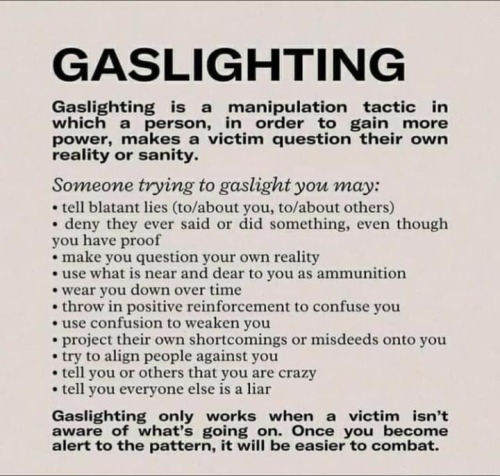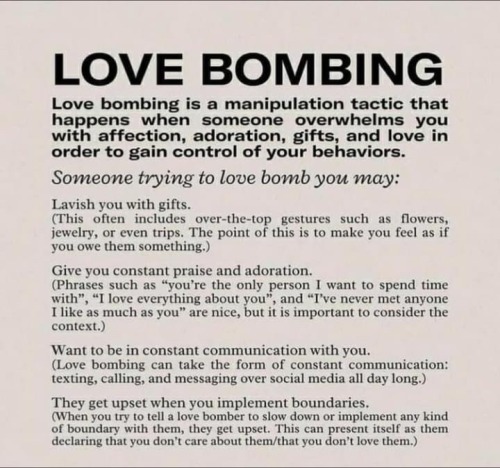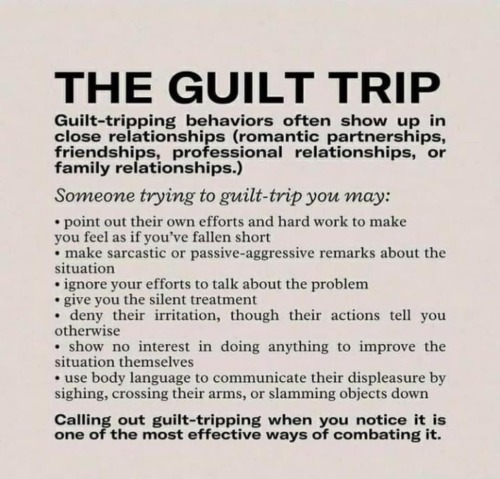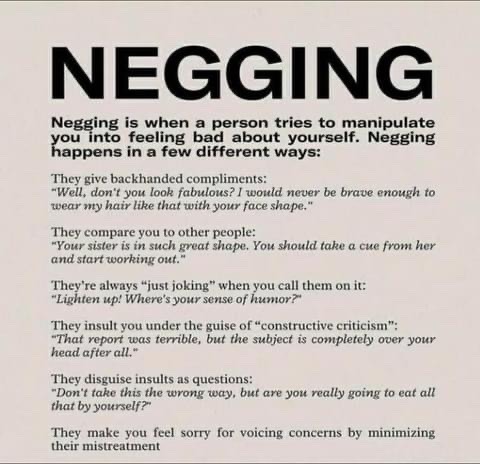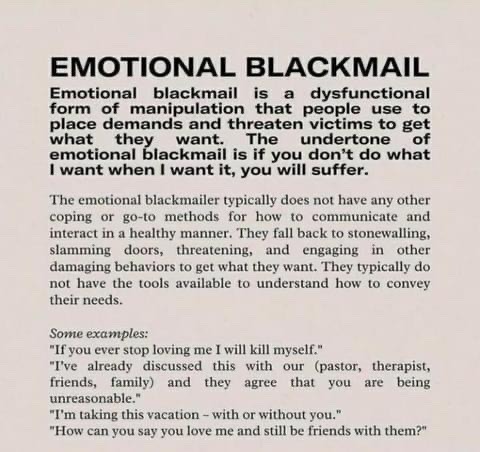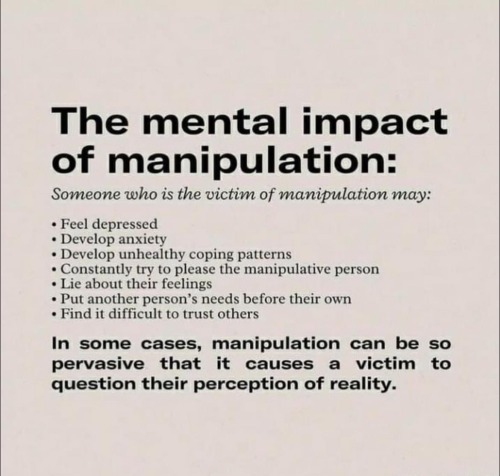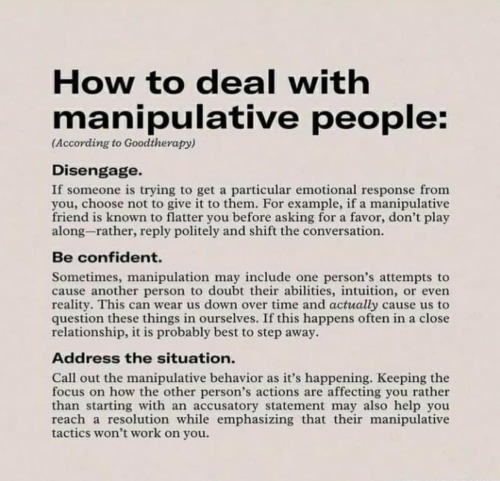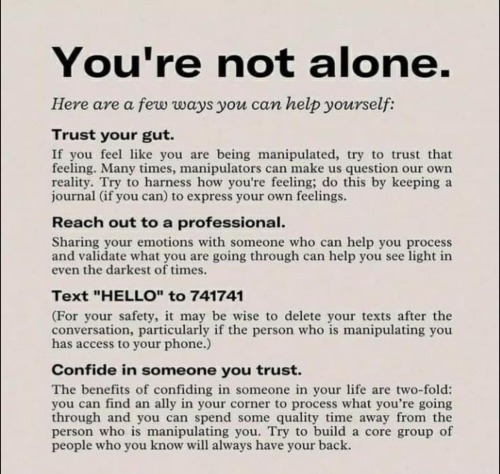Pals, I’m Gonna Tell You One Of Those Hard Truths, And I Hope That You Can Read This And Think About
Pals, I’m gonna tell you one of those hard truths, and I hope that you can read this and think about it in the spirit in which it’s intended.
The vast majority of you do not have “triggers”, you have “squicks”. If you learn the difference, I promise you will be happier and healthier, and you will feel much MUCH less as if all media is attempting to personally attack and traumatize you.
It is ABSOLUTELY LEGIT to dislike something in a piece of media, or to feel disgusted and revolted by it, or to have an aversion to it for any reason and to any degree. That’s normal! That’s absolutely normal, and if that has happened to you, then you are normal too.
But… Words matter. Words have power. There is a difference between “disgust” and “trauma response” – if a person without PTSD or other forms of trauma calls something that disgusts them a “trigger”, they are giving that thing undue and dangerous power over them. You do not have to legitimize your disgust, because your feelings are already valid. But saying “this triggers me” if it doesn’t actually trigger you in the clinical definition means that you are voluntarily giving up some of your own power and agency to the thing you dislike. It means that you are allowing the thing to have a disproportionate impact on your life, that you are giving it power to affect you and get under your skin and stay there. You are building it up into something much more terrifying and monstrous and serious than it deserves to be. Calling it a “squick” makes you bigger than the thing that’s grossing you out – it makes the gross thing into something that you can have power over, that you can vanquish and reject and entirely discard from your life according to your own whimsy. (For those of you who aren’t familiar with the term “squick”, it’s something you don’t like which causes that icky squirmy “ew! no thanks!” feeling. Here’s the Fanlore page for more detail.)
We live in a society that wants to take power away from so many of us at all costs. Nobody hands you power or agency or confidence or strength – you have to claim those for yourself. If you have the ability to take control over something that squicks you, do it. Stand up for yourself and your media experience, and use the word that gives you power. You can turn your back on a squick and walk away without more than a lingering “ugh” feeling; it is almost impossible to do that with a trigger. A trigger ruins your whole day (ask me how I know!).
Words have power. Disgust is a normal human emotion. Your feelings are valid even when they’re not severe and catastrophic.
More Posts from Bipolaruchiha and Others

It’s the masterpost that no one actually asked for, but I really wanted to make. I’ve found a lot of resources, but they were never in one place. So instead of searching all over the place all the time, I decided to make this.
This also includes resources for schizoaffective disorder, which I’ve never seen a masterpost for! I didn’t include things like “Dealing with a bipolar loved one”, but I might make a separate post for friends/family.
Basic information:
About Bipolar Disorder (DBSA)
Bipolar Disorder (NIMH), Bipolar Disorder (Mayo Clinic)
Overview of Bipolar Disorder (pdf)
Bipolar I (WebMD)
Bipolar II (WebMD)
Cyclothymia (Mayo Clinic), Cyclothymia (WebMD)
What is rapid cycling? (DBSA)
Schizoaffective Disorder (NAMI), Schizoaffective Disorder (Mayo Clinic)
Diagnosing bipolar disorder NOS (verywell)
The secret life of manic depression (pdf)
BPD vs BD (post by homojabi)
Mania and hypomania:
Mania symptoms (psych central)
What is mania and hypomania? (WebMD)
What is a manic episode? (healthy place)
Coping with mania (healthline)
Dealing with this manic episode (living manic depressive)
Behavioral strategies for preventing mania (pdf)
Cognitive strategies for preventing mania (pdf)
How to prevent a hypomanic episode (pdf)
Hypersexuality information post (OP deleted, so it’s on bipolarnet)
Depressive episodes:
Depression in bipolar disorder (black dog institute)
Everything you’ve ever wanted to know about bipolar depression (bphope)
Cognitive strategies for preventing and managing depression (pdf)
Behavioral strategies for preventing and managing depression (pdf)
Depression laundry tips (depressionresource)
Mixed episodes:
Mixed episode symptoms (psych central)
How to treat mixed mood episodes (bipolar burble)
Bipolar episodes with mixed features (WebMD)
Schizoaffective disorder:
Living with schizoaffective disorder (psych central)
Living with schizoaffective disorder (brain blogger)
What is schizoaffective disorder?, self care, + treatments and support (mind.org)
Psychosis:
Talking to friends about psychosis ( @therapidcyclist )
Surviving halloween with psychosis ( @mentalhealthwarrior )
How to deal with paranoia when you’re alone ( post by skailu )
How to handle hallucinations (post by schizotiger)
Treatment and medication info:
crazymeds (mood stabilizers, anti-psychotics)
Bipolar medication guide (help guide)
Bipolar disorder - What medication is available? (mind.org)
Bipolar disorder - treatment (nhs)
What to do if your parents refuse to let you have access to mental healthcare (posted by abusedkidproblems)
Self care / executive dysfunction:
Dysfunctional’s guide to functioning ( therapidcyclist )
Grounding kits ( @depressionresource )
What to do when showering is too hard (depressionresource)
lowspoonsgourmet and no-more-ramen
articles on college and bipolar disorder (ibpf)
Fact sheet on recognizing and preventing future episodes
Bipolar self care post (unfortunately OP’s theme is nearly impossible to read, so it’s on bipolarnet)
Apps:
Bipol-app, Booster Buddy, Daily Feats, Daylio, Emoods, iMood journal, Mango Health MediSafe, MoodPanda, Pacifica
note: I’ve tried to make sure all of these apps are free!
This ended up being really long already, but feel free to add to this. If your post was featured here and you want me to remove it, let me know! Please let me know if any links are broken.







bipolar pride flag: for when you’re fuckin bipolar baby!💖💖💖💖
ive been wanting to take a swing at making this kind of thing for ages, and since im manic I figured i’d do it!
color explanation under the cut
Keep reading
Every person need to be taught disability history
Not the “oh Einstein was probably autistic” or the sanitized Helen Keller story. but this history disabled people have made and has been made for us.
Teach them about Carrie Buck, who was sterilized against her will, sued in 1927, and lost because “Three generations of imbeciles [were] enough.”
Teach them about Judith Heumann and her associates, who in 1977, held the longest sit in a government building for the enactment of 504 protection passed three years earlier.
Teach them about all the Baby Does, newborns in 1980s who were born disabled and who doctors left to die without treatment, who’s deaths lead to the passing of The Baby Doe amendment to the child abuse law in 1984.
Teach them about the deaf students at Gallaudet University, a liberal arts school for the deaf, who in 1988, protested the appointment of yet another hearing president and successfully elected I. King Jordan as their first deaf president.
Teach them about Jim Sinclair, who at the 1993 international Autism Conference stood and said “don’t mourn for us. We are alive. We are real. And we’re here waiting for you.”
Teach about the disability activists who laid down in front of buses for accessible transit in 1978, crawled up the steps of congress in 1990 for the ADA, and fight against police brutality, poverty, restricted access to medical care, and abuse today.
Teach about us.
manic episode symptoms/warning signs
THIS IS NOT GOING TO APPLY TO EVERYONE!!! this is my own personal experience. mental illness isn't a one size fits all, i'm not claiming to be an expert or know what everyone's mania feels like, this is just what i've experienced
increased irritability
increased energy
change in appetite, not feeling hungry for days and then becoming ravenous
frequent sensory overload
oversensitivity
changes in sleep pattern, sleeping only 3-4 hours or shifting to sleeping more during the day and being awake all night
noticeable increase in productivity, that might start out as good, but you notice yourself being hyper fixated and jumping from several different projects
increase in impulsivity
feeling like you've lost control over yourself and your actions
paranoia
intrusive thoughts
nightmares
talking a lot, rambling, going on long rants
a feeling like you're watching yourself on a screen, like someone else took over your body and you're watching from the outside as they live your life
being aware you're making bad choices or that you are being reckless but not caring or being able to stop
dissociation
impulse purchases and reckless spending
reckless driving
impulse to change appearance or alter your image that can feel like a NEED if it isn't done immediately (for me this manifests in my hair, like cutting it or changing the color at 3 am. it also used to be comorbid with my eating disorder, which led to extreme fasting to try and lose weight)
feeling like you can accomplish things you couldn't normally do, feeling powerful, inflated ego and sense of self. i sometimes would think i was invincible and that nothing could hurt me and tried to act on it to prove it
increase in libido
risky sexual behavior
heightened emotions, everything feels larger than life, the highs feel like they'll never end and the lows feel like the end of the world
for myself this was only in extreme cases, but visual or auditory hallucinations. i've only had visual hallucinations a couple times, but when things got really bad, i would hear things that weren't there, or hear people calling me when i was all alone
feeling like thoughts are racing and you can't stop them, feeling like everything is loud and you're being pulled in a million directions
friends and family noticing uncharacteristic behavior, cutting people off, becoming VERY irritable, or showing too much affection in a way that isn't normal for you
and, inevitably, when it ends: The Big Crash. the depressive episode after that knocks you out
dam…….. that website “you feel like shit” (it’s like a questionnaire / troubleshooting guide for when you feel like shit) really works………………….. im not even all the way thru it and i even half-assed a lot of the suggestions and i already feel loads better
EDUCATE YOURSELVES: chronic illness edition
this is important! chronically ill people get a lot of shit from healthy people and this could be avoided if everyone knew a little more about chronic illnesses in general so i’ve made a list of things healthy people (and newly chronically ill people) can read in order to know more about chronic illness and how it affects our lives!
some general information and must-reads:
the spoon theory (aka: why we call ourselves “spoonies”)
a sudden illness - laura hillenbrand
young and disabled by rachel anne
harmful tropes in literature
13 things people with chronic illnesses want you to know
a blog by people with chronic conditions
brief explanations of some chronic illnesses:
chronic fatigue syndrome (ME)
crohn’s disease
fibromyalgia + AMPS
ehlers-danlos syndrome - hypermobility type
ehlers-danlos syndrome - all types
CRPS/RSD (complex regional pain syndrome
IBD (inflammatory bowel disease)
POTS (postural orthostatic tachycardia syndrome)
dysautonomia
rheumatoid arthritis
lupus
autoimmune diseases
hashimoto’s disease
addison’s disease
endometriosis
depression (most people with chronic illnesses develop depression)
anxiety
bipolar disorder
and i’m running out of spoons but there are many, many more so spoonies, feel free to reblog add some if you want!
things to keep in mind:
although it says in many descriptions that most people who are diagnosed are over a certain age, anyone at any age can develop a chronic illness, and many are teenagers or even children. don’t tell a chronically ill person that we are “too young to be this sick” because it’s an ignorant thing to say and it’s harmful to us.
many chronic illnesses are invisible illnesses, which means that you cannot tell that a person is sick just by looking at them. never say to a chronically ill person that we “don’t look sick” because it is harmful and annoying, even if you mean well.
some spoonies need to use wheelchairs, canes, or other forms of assistance/ accommodations, so please never express doubt that a person might need this assistance. it’s impolite and insensitive. just because someone looks perfectly fine doesn’t mean that they don’t have a chronic illness that requires the use of a wheelchair or other assistance.
many chronic illnesses aren’t terminal but that doesn’t mean that they aren’t a real problem. chronic illnesses are robbing us of their normal lives and we are living in pain because there is so much that doctors still don’t know about chronic illnesses. many spoonies have had doctors look us in the eyes and say “i don’t know how to help you” because there is so much research that needs to be done and there isn’t enough funding! so donate to organizations and hospitals who are raising money for research!
thank you for reading this! please reblog and spread awareness! thank you!
Things that don’t make you a bad person:
Displaying “scary” symptoms of mental illness
Being diagnosed with multiple disorders
Having one or various personality disorders
Being diagnosed with NPD, BPD, or ASPD
Having very low empathy, or no empathy
Having symptoms that cause anger, emptiness, or paranoia
Having triggers or “strange” personal boundaries
Needing extra help or accommodations
Having intrusive thoughts about upsetting or scary topics
-
 nocturnalfandomartist liked this · 5 months ago
nocturnalfandomartist liked this · 5 months ago -
 theillustriousmrhyde reblogged this · 7 months ago
theillustriousmrhyde reblogged this · 7 months ago -
 deuynndoodles liked this · 7 months ago
deuynndoodles liked this · 7 months ago -
 baphsrphub liked this · 7 months ago
baphsrphub liked this · 7 months ago -
 risingphoenix87 liked this · 7 months ago
risingphoenix87 liked this · 7 months ago -
 nothing-but-chagrin reblogged this · 7 months ago
nothing-but-chagrin reblogged this · 7 months ago -
 nothing-but-chagrin liked this · 7 months ago
nothing-but-chagrin liked this · 7 months ago -
 theangrycrippledqueer reblogged this · 7 months ago
theangrycrippledqueer reblogged this · 7 months ago -
 razette liked this · 10 months ago
razette liked this · 10 months ago -
 andersunmenschlich reblogged this · 1 year ago
andersunmenschlich reblogged this · 1 year ago -
 parakeet-has-ideas-sorta-lol reblogged this · 1 year ago
parakeet-has-ideas-sorta-lol reblogged this · 1 year ago -
 rbgianfar reblogged this · 1 year ago
rbgianfar reblogged this · 1 year ago -
 fandomsandfairytales reblogged this · 1 year ago
fandomsandfairytales reblogged this · 1 year ago -
 somedyke reblogged this · 1 year ago
somedyke reblogged this · 1 year ago -
 sublimepaperfury reblogged this · 1 year ago
sublimepaperfury reblogged this · 1 year ago -
 magnetoxo liked this · 1 year ago
magnetoxo liked this · 1 year ago -
 spencerholmesda reblogged this · 1 year ago
spencerholmesda reblogged this · 1 year ago -
 distressed-honking reblogged this · 1 year ago
distressed-honking reblogged this · 1 year ago -
 child-of-flame-and-sky liked this · 1 year ago
child-of-flame-and-sky liked this · 1 year ago -
 phantomlankypoodles liked this · 1 year ago
phantomlankypoodles liked this · 1 year ago -
 satellite-blossom liked this · 1 year ago
satellite-blossom liked this · 1 year ago -
 miraculousfandoms reblogged this · 1 year ago
miraculousfandoms reblogged this · 1 year ago -
 strawbebbypawz liked this · 1 year ago
strawbebbypawz liked this · 1 year ago -
 debatablyspicydurian liked this · 1 year ago
debatablyspicydurian liked this · 1 year ago -
 cosmicnouille liked this · 1 year ago
cosmicnouille liked this · 1 year ago -
 magnetic-dogz reblogged this · 1 year ago
magnetic-dogz reblogged this · 1 year ago -
 magnetic-dogz liked this · 1 year ago
magnetic-dogz liked this · 1 year ago -
 junebug-jamboree reblogged this · 1 year ago
junebug-jamboree reblogged this · 1 year ago -
 curiouscalembour liked this · 1 year ago
curiouscalembour liked this · 1 year ago -
 moonmunster liked this · 1 year ago
moonmunster liked this · 1 year ago -
 princemolder liked this · 1 year ago
princemolder liked this · 1 year ago -
 voidanddetail reblogged this · 1 year ago
voidanddetail reblogged this · 1 year ago -
 jasvalka liked this · 1 year ago
jasvalka liked this · 1 year ago -
 henchthem reblogged this · 1 year ago
henchthem reblogged this · 1 year ago -
 quakie reblogged this · 1 year ago
quakie reblogged this · 1 year ago -
 wingedcoyotedesigns liked this · 1 year ago
wingedcoyotedesigns liked this · 1 year ago -
 oookaykayoookay reblogged this · 1 year ago
oookaykayoookay reblogged this · 1 year ago -
 oookaykayoookay liked this · 1 year ago
oookaykayoookay liked this · 1 year ago -
 visualecho94 reblogged this · 1 year ago
visualecho94 reblogged this · 1 year ago -
 raedmagdon liked this · 1 year ago
raedmagdon liked this · 1 year ago -
 tomatocages liked this · 1 year ago
tomatocages liked this · 1 year ago -
 stabthesoup reblogged this · 1 year ago
stabthesoup reblogged this · 1 year ago -
 afriendshapedseal reblogged this · 1 year ago
afriendshapedseal reblogged this · 1 year ago -
 afriendshapedseal liked this · 1 year ago
afriendshapedseal liked this · 1 year ago -
 drakalenslt liked this · 1 year ago
drakalenslt liked this · 1 year ago -
 mindelanandalsea liked this · 1 year ago
mindelanandalsea liked this · 1 year ago -
 carpenterenbee liked this · 1 year ago
carpenterenbee liked this · 1 year ago -
 ringwraithmd liked this · 1 year ago
ringwraithmd liked this · 1 year ago





